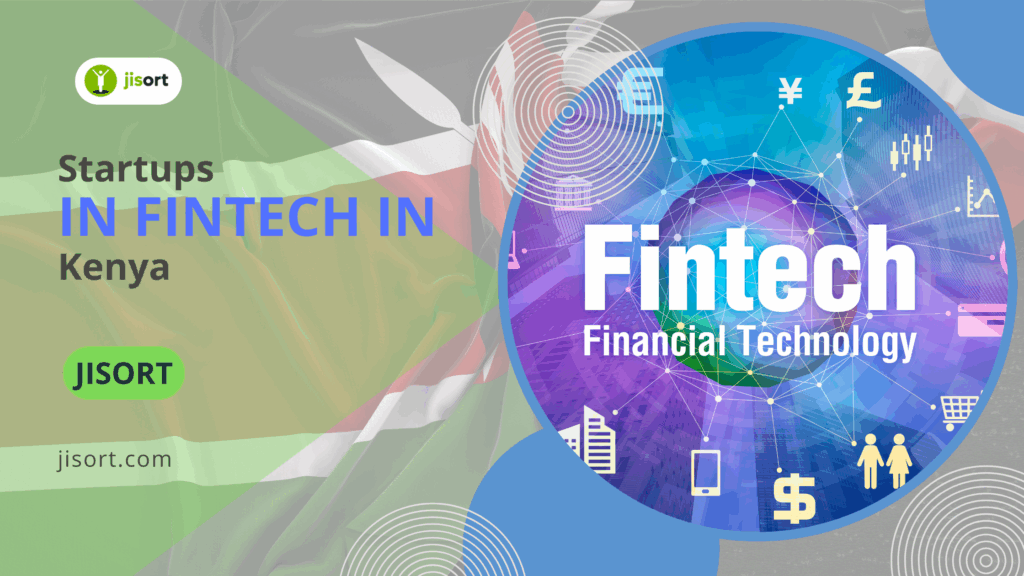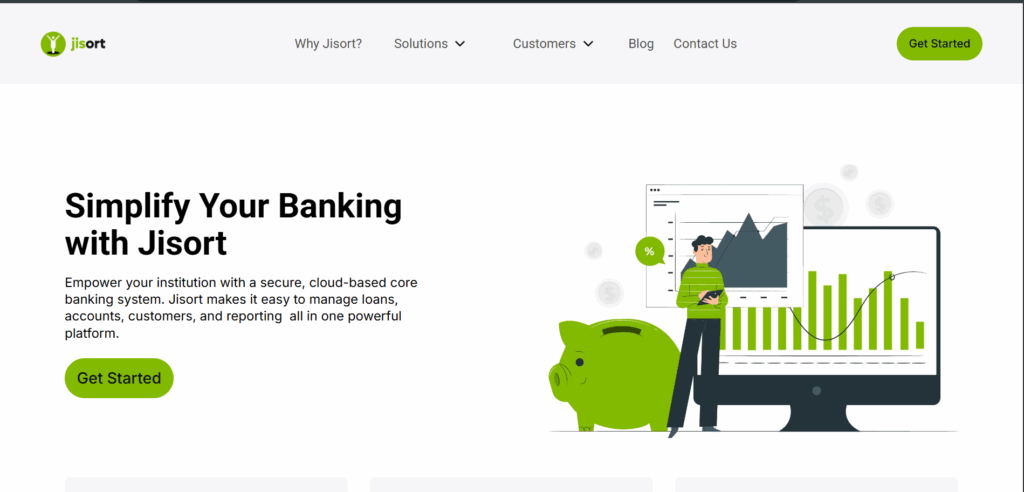
Kenya’s financial technology sector has become a beacon of innovation across Africa. The country’s fintech landscape continues to evolve rapidly, with companies like Jisort leading the charge in digital financial services. From mobile money solutions to digital lending platforms, these companies are reshaping how Kenyans access and manage their finances.
You know what’s fascinating? Kenya has managed to leapfrog traditional banking infrastructure through mobile-first solutions. This transformation didn’t happen overnight—it’s the result of years of innovation, regulatory support, and a population eager to embrace digital financial services.
The Rise of Fintechs in Kenya
The story of fintechs in Kenya begins with a simple yet revolutionary idea: making financial services accessible to everyone. Remember when sending money meant long queues at banks or risky cash transfers? Those days feel like ancient history now.
Kenya’s fintech revolution started gaining momentum in the late 2000s. The country’s unique position as a testing ground for mobile money solutions has attracted global attention. Today, Kenya boasts one of the world’s most advanced digital financial ecosystems.
What makes Kenya’s fintech scene special isn’t just the technology—it’s how seamlessly these solutions integrate into daily life. From paying for groceries to accessing micro-loans, fintechs have become part of the fabric of Kenyan society.
Top 10 Fintechs in Kenya You Should Know
1. Jisort: Your Digital Financial Companion

Jisort stands out as a comprehensive digital financial services platform that’s making waves in Kenya’s fintech space. The company focuses on providing user-friendly mobile money solutions, digital lending, and seamless payment processing.
What sets Jisort apart? Their commitment to localized solutions that actually understand the Kenyan market. They’ve built their platform with the everyday user in mind, making complex financial services feel surprisingly simple.
The platform targets both SMEs and individual consumers, offering services that bridge the gap between traditional banking and modern digital needs. Their user-friendly interface has earned them a growing customer base across Kenya.
2. Ndovu: Micro-Investing Made Simple

Ndovu has democratized investment opportunities for ordinary Kenyans through their micro-investing platform. The company allows users to invest small amounts in diversified portfolios, making wealth creation accessible to everyone.
What’s brilliant about Ndovu is how they’ve removed the traditional barriers to investment. You don’t need thousands of shillings to start—even spare change from your mobile money can be invested automatically through their round-up feature.
The platform’s educational approach helps users understand investment principles while building their portfolios. This combination of accessibility and education has attracted thousands of young Kenyans to start their investment journey.
3. Apollo Agriculture: Farming Meets Fintech

Apollo Agriculture has transformed how Kenyan farmers access financing and agricultural inputs. Their platform combines satellite data, machine learning, and mobile technology to provide customized farming solutions.
The company’s approach is fascinating—they use satellite imagery to assess farm productivity and weather patterns, then offer tailored financing packages. This data-driven approach has made agricultural lending more accurate and accessible.
Apollo’s impact extends beyond just financing. They provide farmers with high-quality seeds, fertilizers, and agronomic advice, creating a complete ecosystem for agricultural success. Their model has helped thousands of smallholder farmers increase their yields.
4. Mwananchi Credit: Community-Driven Lending

Mwananchi Credit has built a unique peer-to-peer lending platform that connects Kenyan borrowers with local investors. Their community-driven approach creates a more personal and culturally relevant lending experience.
The platform’s social lending model allows friends, family, and community members to support each other financially. This approach has proven particularly effective in rural areas where traditional banking services are limited.
What makes Mwananchi Credit special is their focus on relationship-based lending. They’ve digitized the traditional community lending practices that have existed in Kenya for generations, making them more efficient and transparent.
5. Peleza: Know Your Customer Solutions

Peleza provides essential Know Your Customer (KYC) and identity verification services to other fintechs and businesses across Kenya. Their platform helps companies comply with regulatory requirements while preventing fraud.
The company’s identity verification solutions are particularly valuable in Kenya’s growing digital economy. As more businesses move online, the need for reliable customer verification has become increasingly important.
Peleza’s API-based approach allows other fintechs to integrate identity verification seamlessly into their platforms. This infrastructure service has become indispensable for many companies in Kenya’s fintech ecosystem.
6. Terra: Agricultural Supply Chain Finance

Terra has created an innovative platform that connects farmers, input suppliers, and buyers while providing financing solutions throughout the agricultural value chain. Their approach addresses multiple pain points in Kenya’s agricultural sector.
The platform’s supply chain finance model allows farmers to access inputs on credit while guaranteeing market access for their produce. This circular approach has improved income stability for many smallholder farmers.
Terra’s technology platform provides transparency throughout the supply chain, reducing information asymmetries that have traditionally disadvantaged farmers. Their impact on rural livelihoods has been significant.
7. Nobuk: Digital Banking for the Unbanked

Nobuk has created a comprehensive digital banking platform specifically designed for Kenya’s unbanked and underbanked populations. Their mobile-first approach provides essential banking services without requiring traditional bank accounts.
The platform’s strength lies in its simplicity and accessibility. Users can open accounts, save money, and access basic financial services using just their mobile phones. This approach has made banking accessible to communities that were previously excluded.
Nobuk’s focus on financial inclusion has earned them recognition as a key player in Kenya’s push toward universal financial access. Their user-friendly interface and low-cost structure make banking viable for low-income earners.
8. Smart Kiosk: Digitizing Retail Finance

Smart Kiosk has transformed small retail businesses across Kenya by providing digital payment solutions, inventory management, and working capital financing. Their platform specifically targets the thousands of small shops that form the backbone of Kenya’s retail economy.
The company’s point-of-sale systems have enabled small retailers to accept digital payments while tracking inventory and sales data. This digitization has improved business efficiency and opened up new financing opportunities.
Smart Kiosk’s working capital loans are particularly valuable for small retailers who need to restock inventory but lack access to traditional credit. Their data-driven approach to lending has made credit more accessible to this underserved segment.
9. Malipo: Digital Payment Solutions for Everyone

Malipo has built a comprehensive digital payment platform that serves both businesses and consumers across Kenya. Their solution combines mobile payments, bill management, and merchant services in one integrated platform.
The company’s strength lies in their ability to handle complex payment scenarios while maintaining simplicity for end users. Whether you’re paying utility bills, transferring money, or making business payments, Malipo’s platform handles it seamlessly.
Malipo’s merchant-focused features have made them popular among small and medium businesses looking to streamline their payment processes. Their analytics and reporting tools give businesses valuable insights into their payment patterns and customer behavior.
10. Pinnoserve: Innovative Financial Technology Solutions

Pinnoserve has positioned itself as a versatile fintech service provider offering innovative financial technology solutions to businesses and individuals across Kenya. Their platform focuses on bridging gaps in the financial services ecosystem through technology-driven approaches.
The company’s multi-faceted approach addresses various financial service needs, from payment processing to financial management tools. Their technology-first mindset has enabled them to create solutions that adapt to Kenya’s evolving digital financial landscape.
Pinnoserve’s impact on Kenya’s fintech sector comes through their ability to provide customized solutions for different market segments. Their flexible platform architecture allows them to serve diverse client needs while maintaining operational efficiency.
Major Challenges Facing Fintechs in Kenya
Regulatory Complexity and Compliance Costs
Kenya’s fintech sector operates in a complex regulatory environment. The Central Bank of Kenya maintains strict oversight, requiring companies to meet substantial capital requirements and compliance standards.
Honestly, the regulatory landscape can be daunting for startups. New companies often struggle with licensing requirements and the ongoing costs of compliance. These barriers can stifle innovation and limit competition.
However, regulatory clarity also brings stability. Companies that successfully navigate these requirements often find themselves in a more secure competitive position.
Infrastructure and Connectivity Challenges
Despite significant progress, Kenya still faces infrastructure challenges that impact fintech operations. Rural areas often have limited internet connectivity, and network reliability can be inconsistent.
High data costs remain a barrier for many users, particularly those in lower-income segments. This digital divide means that some fintechs struggle to reach underserved populations effectively.
Cybersecurity threats also pose ongoing challenges. As digital financial services grow, so does the sophistication of cyber attacks targeting both companies and users.
Competition and Market Saturation
The Kenyan fintech market has become increasingly competitive, with both local and international players vying for market share. This competition has led to price wars and reduced profit margins.
Customer acquisition costs have risen significantly as companies compete for the same user base. Traditional banks are also entering the fintech space, bringing substantial resources and established customer relationships.
Market saturation in urban areas has forced companies to look toward rural markets or regional expansion, both of which present their own challenges.
Digital Literacy and Trust Issues
While Kenya has high mobile phone penetration, digital literacy remains uneven across the population. Many potential users lack the skills or confidence to use sophisticated fintech services.
Trust issues persist, particularly among older users who may be skeptical of digital financial services. High-profile fraud cases have sometimes undermined public confidence in fintech platforms.
Building trust requires significant investment in user education and customer support. Companies must balance user-friendly interfaces with security measures.
The Future of Fintechs in Kenya
Emerging Technologies and Trends
Blockchain technology and cryptocurrency adoption are gaining traction in Kenya. Several fintechs are exploring how these technologies can improve cross-border payments and financial inclusion.
Artificial intelligence and machine learning are becoming more sophisticated, enabling better credit scoring and fraud detection. These technologies will likely drive the next wave of fintech innovation.
Open banking initiatives are creating new opportunities for collaboration between traditional banks and fintech companies. This trend could lead to more integrated financial services.
Growth Opportunities and Market Expansion
Kenya’s young, tech-savvy population presents significant growth opportunities. As smartphone penetration increases, more sophisticated fintech services become viable.
The growing e-commerce sector creates demand for payment solutions, logistics services, and working capital financing. Fintechs that can serve this ecosystem effectively will likely thrive.
Government digitization initiatives are creating new opportunities for fintech companies to provide services to public sector entities. This trend could drive significant growth in B2B fintech services.
Strategic Recommendations for Fintech Success
Companies looking to succeed in Kenya’s fintech space should focus on several key areas. First, regulatory engagement is crucial—work closely with regulators to understand requirements and influence policy development.
Partnership strategies can accelerate growth and reduce costs. Consider collaborating with established players rather than competing directly. Strategic partnerships can provide access to customer bases, distribution channels, and technical expertise.
Technology innovation must be balanced with user needs. While cutting-edge technology is important, solutions must be accessible and practical for the Kenyan market. Jisort exemplifies this balance with their user-friendly approach to complex financial services.
Financial literacy programs can drive adoption while building trust. Companies that invest in educating users often see better engagement and lower default rates.
The Bright Future of Kenya’s Fintech Sector
Kenya’s fintech sector has come a long way from the early days of mobile money. Today, the country hosts a diverse ecosystem of financial technology companies serving everything from micro-loans to international remittances.
The challenges are real—regulatory complexity, infrastructure limitations, and intense competition all pose significant hurdles. However, the opportunities are equally compelling. Kenya’s young population, growing economy, and supportive regulatory environment create a foundation for continued growth.
As we look toward the future, Kenya’s fintechs will likely play an increasingly important role in driving financial inclusion and economic development. Companies that can navigate the challenges while staying true to their mission of serving Kenyan consumers will be well-positioned for success.
The fintech revolution in Kenya is far from over. In fact, it feels like we’re just getting started. With continued innovation, strategic partnerships, and a focus on user needs, Kenya’s fintech sector is set to remain a leader in Africa’s digital financial transformation.




